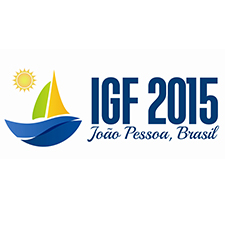Cybersecurity, human rights and Internet business triangle
13 Nov 2015 14:00h - 15:30h
Event report
This interactive session co-organised by DiploFoundation and the MAPPING project identified several gaps in the human rights, cybersecurity, and business triangle. These include different interests, the different languages different communities use, the time element, education, prejudice, and probably above all, trust.
Vladimir Radunović of DiploFoundation gave a short insight into the session’s topic and started the discussion by asking people from the audience to share with others, to explain where they felt a lack of communication existed in the above mentioned triangle. Radunović then introduced panellists and asked them to share their views.
Prof. Joseph Cannataci, MAPPING project coordinator and the UN Special Rapporteur on the Right to Privacy, mentioned that 80% of actionable intelligence comes from publically available resources and reminded that intelligence surveillance is important to ensure security of the state and its infrastructure. It is important to find the balance and make sure that intelligence tools are used in moderation and under proper oversight mechanisms.
Valentina Pavel, of the Association for Technology and Internet, presented a situation in her home country of Romania, where she complained about the level of interaction between law enforcement institutions and civil society. There is no willingness to have a real debate on human rights she observed.
Another round of questions from the audience identified that there was a problem with pacing in terms of cybersecurity measures being rushed by governments under various excuses. The suggestion of how to break the silos in the triangle was to be pragmatic and to focus on practice. The call for pragmatism was answered by Cannataci who mentioned several examples of forums and real cases where governments, law enforcement, and secret intelligence agencies meet and discuss. Among these, he mentioned the MAPPING, RESPECT, and CONSENT projects. This call for pragmatism was acknowledged by the remote intervention of Dr Jovan Kurbalija of DiploFoundation and the Geneva Internet Platform, who gave the migration crisis as an example of a triangle interplay of cybersecurity, business and economy, and human rights.
Another panellist, Patrick Curry of the British Business Federation Authority (BBFA), gave a security perspective of business where he mentioned a dependency on trust and interoperability. He stressed the importance of risk management which can be vital in changing the security culture.
Desiree Miloshevic of Afilias Plc focused on the aspect of trust. She listed several examples of solutions that are trying to break down the silos. For example, the Mail Anti Abuse Working Group (MAAWG), Let’s encrypt, the Global Network Initiative and others.
Final comments tackled trust in governments, encryption, and equal recognition of cyberspace as a separate space by governments. The organisers will elaborate a detailed report on the session soon. Please watch either MAPPING or GIP websites.
By Bejdak Radek
Related topics
Related event

